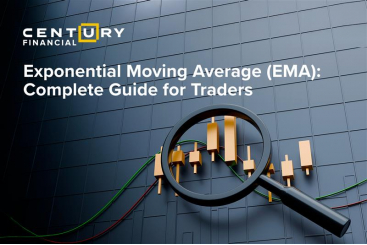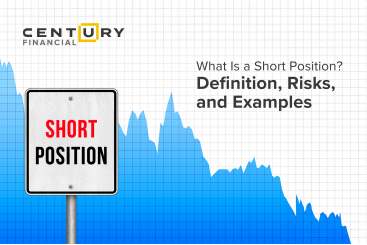
.jpg)
Cultivated products like cotton, cocoa and sugar are not just a staple in our daily lives, they comprise a vital part of the trading world in the form of soft commodities. Soft commodity trading can be traced back thousands of years and continues to be around as it plays an essential part in our daily lives.
However, this volatile market is only favorable for some investors. To trade commodities like these, there are a few pointers you can watch out for, and we will discuss them for you below.
Understanding soft commodities
Soft commodity trading is different from hard commodities in the sense that they are cultivated and grown and not mined. Soft commodities are essential for daily sustenance. Therefore, their availability—or lack thereof—presents a chance for traders and investors to make predictions about the future. This is due to the risks associated with soft commodities' delivery, such as erratic weather patterns and soil deterioration, which contribute to market uncertainty.
How can you start soft commodity trading?
You can start soft commodity trading in two ways: spots and futures.
Since spot markets are linked to "spot" i.e current prices, they can be bought or sold right away at the spot price. Investors set the spot price by placing sell and purchase orders. In liquid markets, the spot price may fluctuate by the second as orders get filled and new ones enter.
A soft futures contract is a binding agreement for the future price-based delivery of trading commodities like cocoa, coffee, cotton, sugar, and frozen concentrated orange juice. The Intercontinental Exchange (ICE) Futures U.S. lists and standardizes the contracts, and the Commodity Futures Trading Commission regulates them in terms of quantity, quality, timing, and delivery location.
Advantages of soft futures contracts
Soft futures contracts have various benefits over spot trading:



Common soft commodities to trade in & how it works
Although various products are involved in soft commodity trading, we will discuss some common ones below:

Cocoa
The world's most common cocoa is traded in countries like Ghana, Indonesia, Ecuador, Nigeria, Brazil, etc. It is a common product for daily utilities like hot cocoa and chocolate. Cocoa is traded in USD per metric ton, with each contract containing ten tons. The tick size, or minimum price fluctuation, is one dollar, or $10, per contract. Even though the market typically trades in increments bigger than one dollar, the minimum amount it can move is one dollar.

Cotton
Cotton futures can significantly add to your trading portfolio due to their influential appeal and importance. It is America's first cash crop and has been considered the reason behind the rise and fall of various countries as one of the most widely traded commodities. Cotton is exchanged in cents per pound; more commonly, it is traded in 500-pound contracts. The minimum tick size is $0.0001, which equals $5 per contract. Therefore, a change in cotton prices of 2 cents will result in a $1,000 gain or loss.

Coffee
According to the International Coffee Organization, 11.79 million 60 kg bags were exported in March 2022. Thus, there is no doubt that coffee is one of the most commonly used products in people's lives. Originating in Ethiopia, coffee has made its way to Africa, the Middle East and eventually to coffee houses across the globe. Each pound of coffee is valued in cents. One coffee contract controls 37,500 pounds of coffee, and a tick costs 5 cents per pound or $18.75 per tick.

Sugar
Sugar, which was anciently used only by the wealthy, is now a staple ingredient worldwide. Due to its wide appeal, sugar typically ranks among the world's most heavily traded commodities in terms of volume. The sugar contract is represented in cents per pound and has a $0.0001 or $11.20 (per contract) minimum price movement.

Frozen Concentrated Orange Juice (FCOJ)
FCOJ is a new player in soft commodity trading. Due to its limited shelf life and susceptibility to price spikes, orange juice was traditionally consumed as fresh fruit juice for years. Freezing orange juice was developed in the 1940s and quickly became the industry norm. One FCOJ contract is worth 15,000 pounds, and each tick costs $0.005.
There are numerous opportunities in soft commodity trading, just like stocks. The only thing to remember is that before making an investment, you should thoroughly assess the risk involved and understand contract details in depth.
This marketing and educational content has been created by Century Financial Consultancy LLC (“Century”) for general information only. It does not constitute investment, legal, tax, or other professional advice, nor does it constitute a recommendation, offer, or solicitation to buy or sell any financial instrument. The material does not take into account your investment objectives, financial situation, or particular needs.
The opinions expressed by the hosts, speakers, or guests are their own and may change without notice. Information is based on sources we consider to be reliable; however, Century does not guarantee its accuracy, completeness, or timeliness and accepts no liability for any loss arising from reliance on this content.
Trading and investing involve significant risk, and losses may exceed initial deposits. Past performance is not indicative of future results. CFDs and other leveraged products are complex instruments that may not be suitable for all investors. Please ensure you understand how these products work, the associated risks, and seek independent professional advice if necessary.
Century is licensed and regulated by the UAE Capital Market Authority (CMA) under License Nos. 20200000028 and 301044.
Please refer to the full risk disclosure mentioned on our website.




__1439480927.jpg)




.png)
.png)
.png)
.png)


